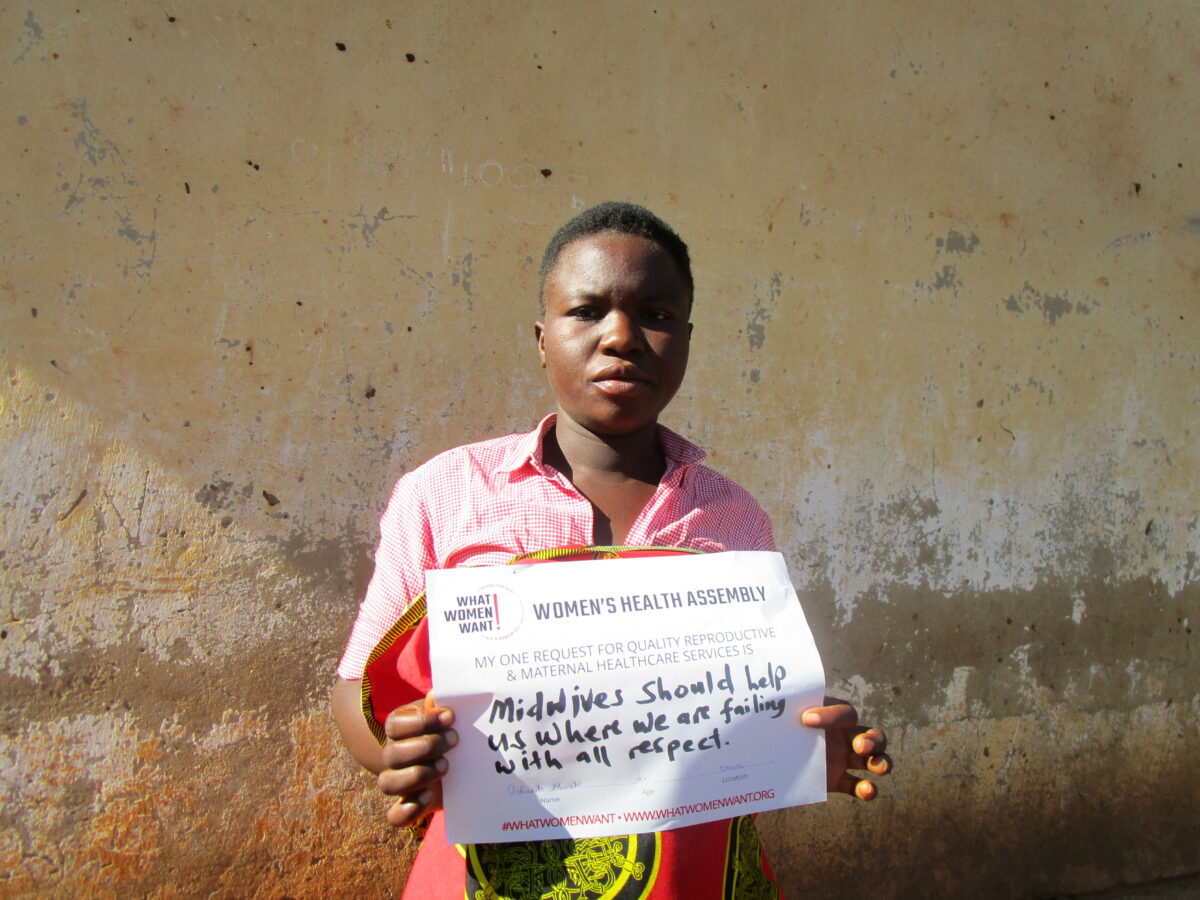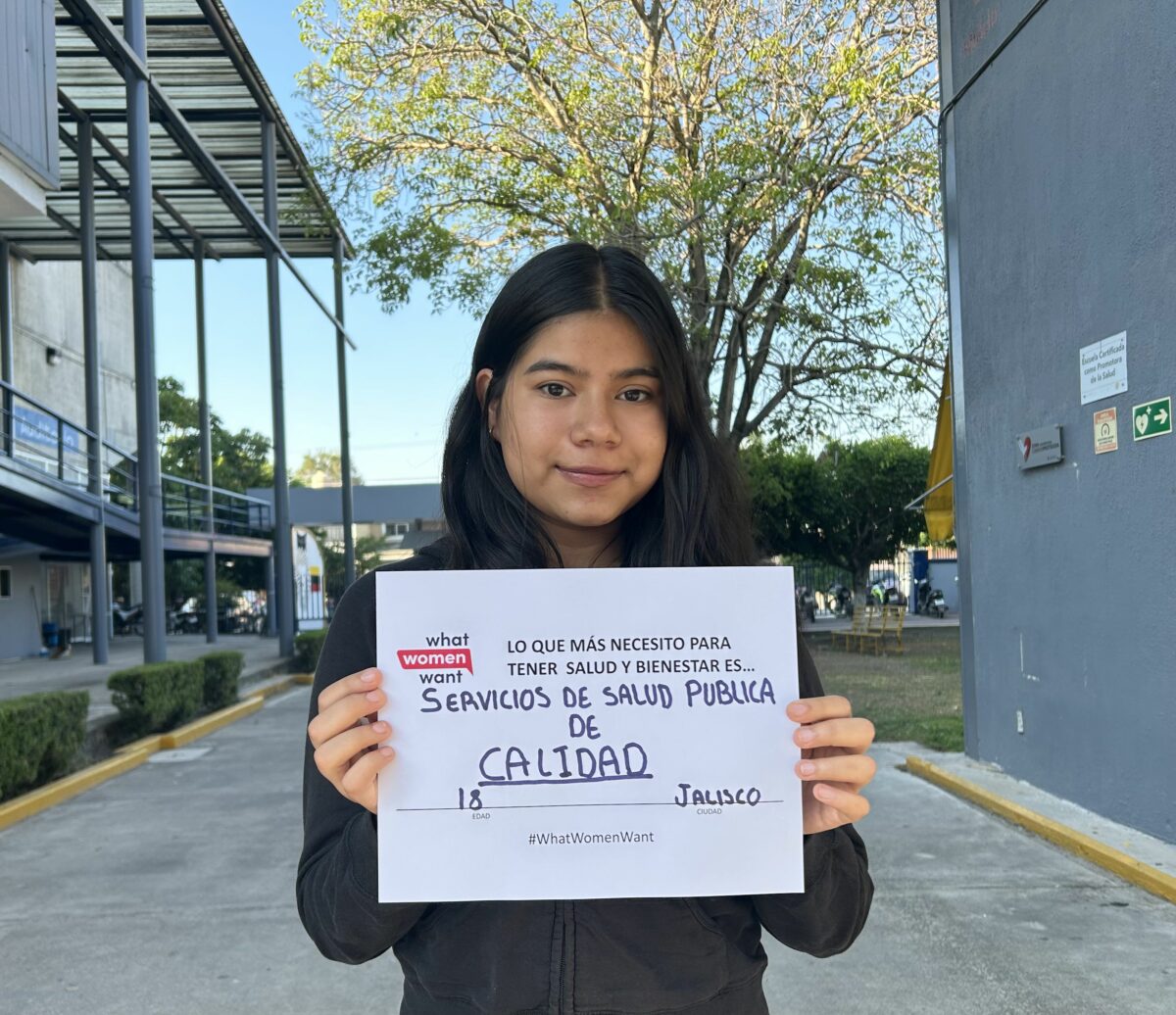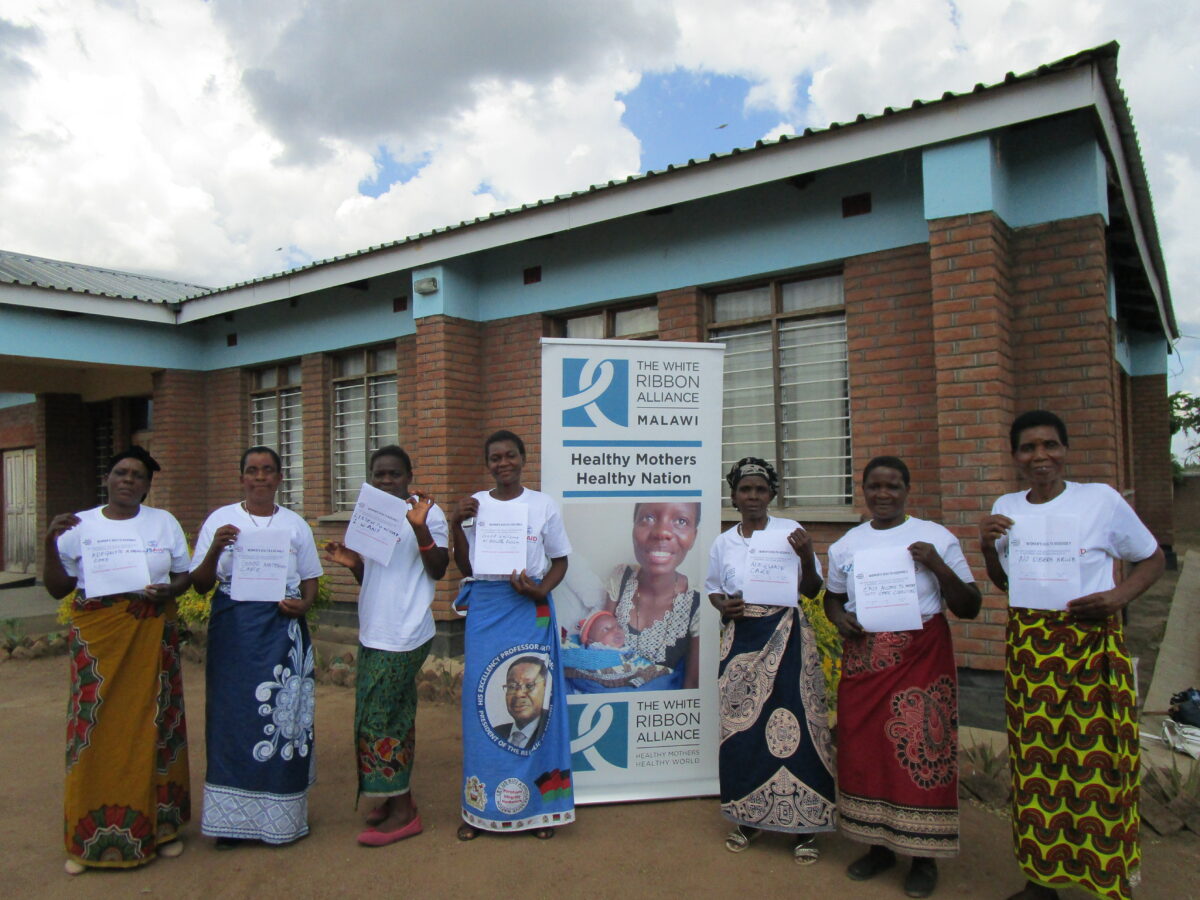When we canvassed Malawian women and girls about their reproductive and maternal health needs, several demands rose to the top: respectful and dignified care; water, sanitation, and hygiene (WASH); medicines and supplies including family planning (FP), and more midwives. As dual health and climate emergencies struck Malawi, their demands took on even greater urgency—shaping emergency-related policies and procedures according to women’s needs and saving lives in the process.
At the onset of the COVID-19 pandemic, lockdowns and curtailed primary care services made it exceptionally difficult for women to access reproductive and maternal health care. Advocates leveraged women’s demands to inform and fast-track a new guideline deeming maternal, newborn, and family planning services as essential during the pandemic. The guideline responds directly to women’s requests, calling for women to be treated with compassion, respect, and dignity; for women to be able to make informed decisions about their healthcare; for facilities to provide functional hand hygiene stations and cleaning supplies; and for strengthening of community-based distribution of family planning. It also was credited with keeping FP services and maternity wards operational during the most critical stages of the pandemic.
At the same time, the government of Malawi was overhauling its approach to providing sexual and reproductive health and rights (SRHR) in emergency settings, including natural disasters. Backed by women’s demands, advocates successfully made the case that Civil Protection Committees (CPCs)—the primary disaster response coordinators—include SRHR and maternal health issues in their remit and include a midwife representative on the committee. This achievement became crucial in early 2022, when Malawi’s southern district was struck by Tropical Storm Ana. Maternity wards became inoperable due to the flood waters and delivery kits and other essential equipment became inaccessible. The CPCs, guided by on-the-ground intelligence by their midwife members, took immediate action to coordinate the setup of maternity tents and to identify and address stockouts of maternal health medicines and supplies. Midwives were credited with providing crucial life-saving advice—showing the power of representation and of speaking up and out, even in the most trying of circumstances.




